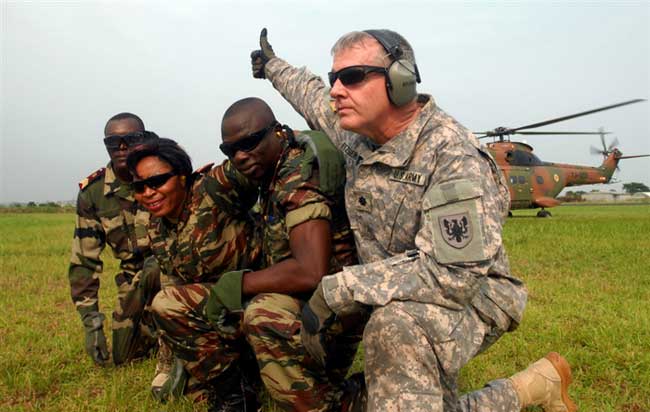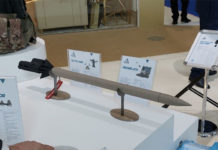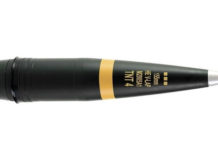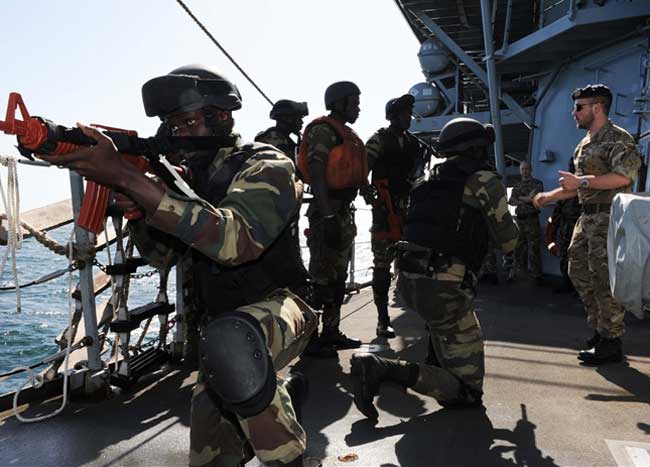
The US must increase its intelligence- gathering capacity in Africa 15-fold in the short term to counter the threat posed by regional Islamic extremist groups and maritime piracy, particularly in the Gulf of Guinea, according to a top US general. I-HLS Reports
US Army Gen. David Rodriguez paid his first visit to the continent as head of US Africa Command (AFRICOM) this month, visiting the US Army base at Camp Lemonnier in Djibouti. The visit came as the US, Britain and some European partners consider plans to increase anti-piracy operations in the Gulf of Guinea while ramping up the training and equipping of West African partner armies to crack down more effectively on the maritime piracy crisis.
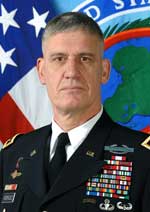
According to Defense News security analysts say there is a possible link between piracy in the Gulf of Guinea and the financing of regional Islamist terrorist groups such as al-Qaida in the Islamic Maghreb (AQIM), Ansar Al Dine, Movement for Oneness and Jihad in West Africa (MUJAO), Boko Haram and the National Movement for the Liberation of Azawad, all of which operate in the wider Sahel desert region covering Nigeria, Mali, Niger, Algeria, Morocco and Mauritania.
The Gulf of Guinea is a key international shipping lane off the Atlantic coast of West Africa and is considered one of the world’s most dangerous security zones due to a surge in maritime crimes such as piracy, robbery, hijackings, arms and narcotics smuggling, kidnappings and oil theft in the past three years. The “pirate zone,” which had been limited to territorial waters off the coasts of Nigeria and Benin, now covers the West African region from the Atlantic coast of the Democratic Republic of Congo in Central Africa up to Ivory Coast, according to the latest report from the International Maritime Bureau.
Rodriguez said expanding the command’s ISR capabilities includes an urgent need for unmanned aircraft and more spy satellites for image collection over the continent.
The US, Britain, Spain, France and Belgium have taken part in several regional maritime security and naval exercises and provided training for some African forces while leaving territorial water patrols to local forces. Concerned that money generated from piracy operations in the Gulf of Guinea could be used to finance terrorist groups, US defense officials are examining more practical ways of clamping down on piracy in West Africa.
This year, naval and marine forces drawn from several African nations participated in the US-led Exercise Obangame Express 2013 in which naval specialists from Britain, France, Belgium, the Netherlands and Canada led training.
Concerned by the spread of terrorism in the Sahel and piracy in the Gulf of Guinea, the US Army this year opened its first West African drone base in the capital of Niger, Niamey.
From that base, Predators operate on intelligence-gathering and surveillance missions. Since 2011, when Sahelian terrorism became a serious threat, AFRICOM has evolved into a more offensive force, creating a special purpose Marine air ground task force to provide limited crisis-response capability and conduct counterterrorism training on the continent.
In line with its shift to more combat-oriented duties, AFRICOM has dedicated special operations units, including a rapid reaction force set up after last year’s Benghazi attacks.
Source: i-HLS ISRAEL Homeland Security

